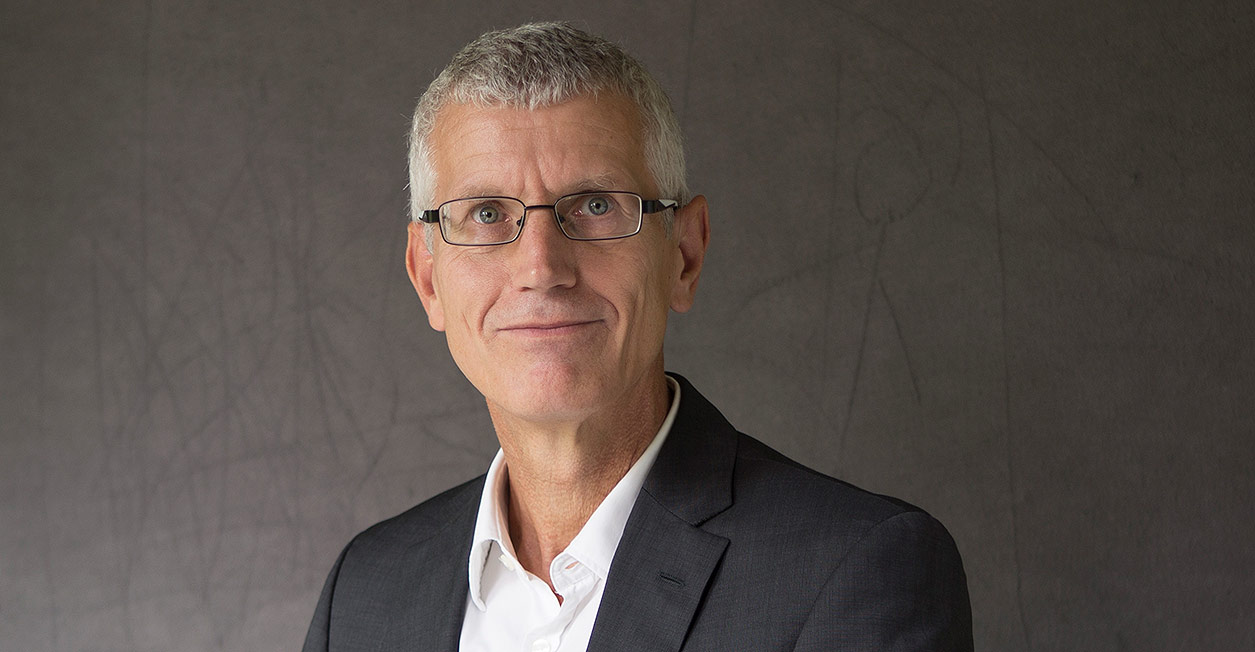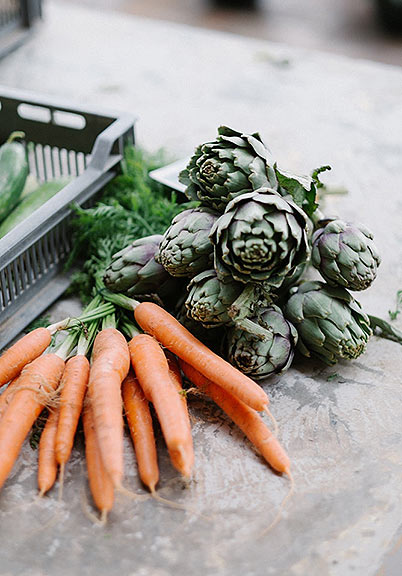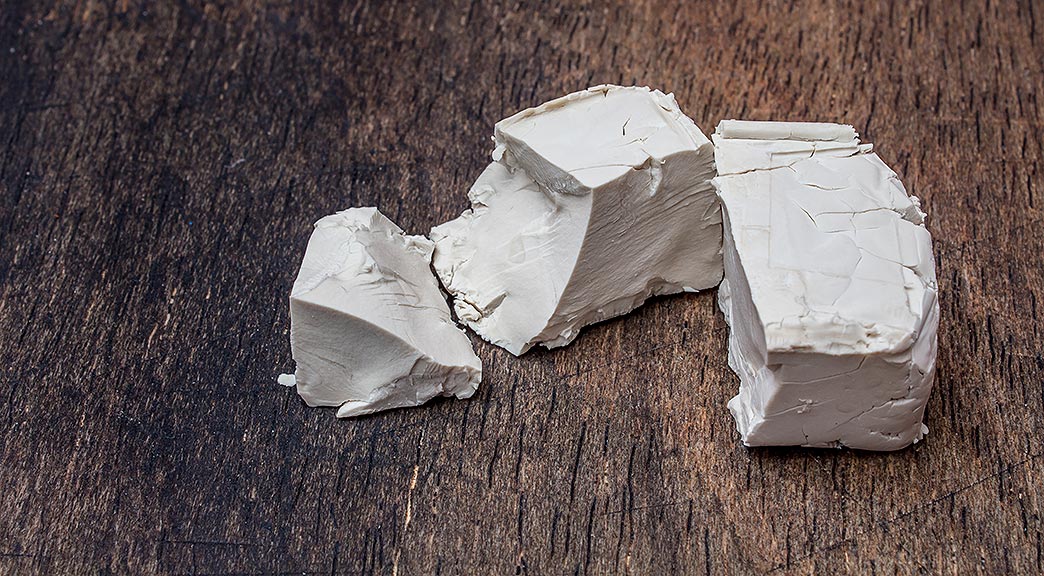A B12 deficiency can affect anyone!
Dr. Andreas Schenzle in an interview
This interview was published in German on October 9, 2018, on veenity.com.
Dieses Interview wurde am 9. Oktober 2018 auf veenity.com auf Deutsch veröffentlicht.
Author: Linda Schenker
There are myths surrounding vitamin B12. "A diet for which you have to take pills? No, thanks." This is a common argument against a vegan lifestyle; vegans, however, would rather take a pill in order to be able to do without animal products, which are partially contaminated with drugs. PanVega AG enriches the market with innovative vegan-organic products that allow vegans to have a healthy diet while forgoing a B12 supplement. Dr. Andreas Schenzle, CEO of the startup, sheds light on B12 from a new perspective.

I studied technical biology and did my Ph.D. in applied microbiology, in my home country, Germany. I worked as a microbiologist in different companies, including DuPont in America. I then switched to pharma/biotechnology. But I realized that I liked microbiology better.
In 2013, I came to Switzerland. My diet and worldview have changed over time. My wife influenced me a lot: because of her, I first became a vegetarian and then, about three years ago, a vegan. During this change, I started thinking about what a reasonable contribution to support a vegan lifestyle would be.
I knew that vitamin B12 was produced exclusively by bacteria. And its intake is a problem in fully plant-based nutrition, because vitamin B12 is found almost only in animal products. I thought about a project and realized it.
„The idea and the main goal were to develop a vitamin B12 that complied with both the organic-farming ordinance and a purely plant-based diet“
The idea and the main goal were to develop a vitamin B12 that complied with both the organic-farming ordinance and a purely plant-based diet, in short, that was vegan-organic. Even the raw materials, for example, would contain no genetically modified components.
For such a research project, you have to work together with a university. Through my scientific network, I came across people who offered me their support: two professors from the University of Western Switzerland in Sion, a microbiologist and a food technologist. They were enthusiastic about the project idea.
In order to finance the project, we applied for support from the Swiss CTI (Commission for Technology and Innovation, now Innosuisse). The CTI promised half of the project budget. The other half was to be covered by one or more industry partners. That's why we presented the project idea to a Swiss SME from the fermentation industry, which showed great interest in producing the B12 on a large scale.
Finally, the CTI accepted our application and we were ready to go. I provided my know-how and coordinated all project activities.
After two years, the project was successfully completed, in December 2017. Though, compared with other common fermentations, our fermentation is relatively hard to handle, we now have it under control. Also, it was not just about the fermentation, but also about producing marketable food products. For this purpose, an intermediate product was created, which is long lasting and easy to dose into food.
Yes, exactly, but we also want to develop and market further products in the long run.
During my time at DuPont and at Statoil (now Equinor), in Norway, I worked on projects to produce biomass from natural gas using fermentation. There are special bacteria that grow on natural gas. Statoil and DuPont were interested in making something reasonable out of the excess natural gas of the oil fields.

The biomass produced by the bacteria was very high in protein. In Norway, it's been used for years as fish food in fish farms. The next step would have been for the biomass to be used as feed for livestock in agriculture; however, doing so ceased to be worthwhile, because of the sharp increase in gas prices.
Absolutely. That goes in the direction of sustainability. But I have to say that, today, I would no longer produce feed. In fact, biomass produced from natural gas should also be used as a raw material for other industrial fermentation processes. Many fermentation processes (like ours, for instance), need a complex source of nitrogen. I think this product idea still makes sense.
Take the example of ruminants: they have a very complex digestive system. And bacteria in their digestive tract produce cobalamin (the scientific term for B12). The animals absorb it through their stomach or intestinal walls, that's how it gets into their meat and into their milk.
It does not matter if the cow eats grass or concentrated feed. In every animal, including humans, bacteria are located in the digestive system. There is even a symbiosis with many of the microorganisms here. Humans are colonized by B12-forming bacteria in the colon. Unfortunately, we absorb B12 in the small intestine, so we have to take the vitamin through our food, unless we supplement it otherwise.
I cannot confirm that. While there are soil bacteria that produce vitamin B12, I cannot imagine that eating ten dirty carrots will be enough to provide you with the necessary amount of B12. I can only imagine that is the case for boars, because they eat a lot of soil with their food.
In any case, B12 is the element that needs to be supplemented if you are fully plant-based.

Does eating ten dirty carrots a day provide enough B12? –
It's all just rumour.
Generally, via fermentation with special bacteria, in suitable stirrer tanks. Microorganisms are often involved when something is produced. For example, yeast and sauerkraut are very typical fermentation products. The food industry has long produced many products using bacteria or fungi. Another example is vitamin C.
Conventionally, vitamin B12 is made with genetically modified bacteria. The vitamin is then concentrated and purified. Overall, this is not in line with organic regulations. We, in contrast, do not use genetically modified bacteria, but rather so-called wild types and leave the B12 unchanged in the biomass.
As early as the 1920s and 1930s, it was described as a factor that could cure malignant anemia. In 1948, it was crystallized. Only since 1955 has its molecular structure been known. Just a few years after that, commercial production of the vitamin began via fermentation in large stirred tanks.

One always speaks of fermentation when something is produced by microorganisms (which are usually single-cell living organisms), other, nonmicrobial cells, or enzymes. Louis Pasteur was the first to describe fermentation in the absence of oxygen. The term was later extended to apply to all transformations of organic matter by cells or enzymes.
„We employ a bacterium of the species Propionibacterium that does biosynthesize the bioactive forms of vitamin B12 - adenosylcobalamin and methylcobalamin.“
It's actually one species of Propionibacteria that is harmless and useful. Propionibacteria are for exemple well known to create the distinctive holes in Emmental-type cheese and contribute to its taste. And they art responsible for the fact that the cheese contains a relatively large amount of B12. Propionibacterium biosynthesize the bioactive forms of vitamin B12 - adenosylcobalamin and methylcobalamin. And, importantly, Propionibacteria are not dependent on animal-derived substrates for their growth.
If we want to produce B12, we take the bacterium from the deep freezer (-70°C). If we need to grow it, we take out one of the tubes and rub some biomass on a Petri dish with agarose and a special growth medium—completely vegan, of course.
Agarose is a vegetable polymer that is also often used for jam production. If you boil it up and then cool it down, it results in a jelly-like consistency. In the agarose, the nutrients, comprising salts, a nitrogen source, and a carbon and energy source, are mixed so that the bacteria can grow.
Once spread on the nutrient medium, the bacteria are brought to life. On the plate, single cells grow into colonies, which you can see with the naked eye. Colonies are selected and transferred into a liquid medium in a tube or flask with the same media ingredients without agarose. Thereafter, the liquid is transferred to a larger flask, then to the fermenter and, finally, to a larger fermenter. On our Web site, panvega.ch, there is a nice illustration of this process.
The biomass is produced in about two weeks. To make the biomass more durable, easy to dose, and storable, we then dry it, but this takes only one additional day.
A B12 deficiency can lead to a blood disorder and damage the central nervous system. This has many consequences, such as chronic fatigue and tiredness, motor disorders, and many more. In extreme cases, one can die of a B12 deficiency.
Yes, that is possible. For example, many elderly or sick people can no longer absorb B12 very well. B12 deficiency can trigger dementia, among other things.
At this point, I would like to say that our veg' N co products can prevent a B12 deficiency in healthy people, just like, for example, the daily consumption of a lemon can prevent vitamin C deficiency. In case of an already existing B12 deficiency or an increased need, one should consult a doctor and be supplemented accordingly. By the way, every person, no matter what they eat, should be regularly checked for a B12 deficiency. Better safe than sorry.
The legally recommended daily dose is 2.5 micrograms. A healthy person does not need more. The body absorbs one to two micrograms per meal via the small intestine. The human body has a sophisticated system for absorbing B12. Proteins that bind the B12 tightly are already in saliva and protect against stomach acid—even before the intrinsic factor comes into play.
The legally recommended daily dose of B12 is 2.5 micrograms.
Unbound B12 is rapidly destroyed by the hydrochloric acid in the stomach. This is probably one of the reasons why the B12 of many pills is not absorbed very efficiently. Since vitamin B12 is extremely important for the body, the body handles it very carefully and economically, and even recycles it.

There are many people who would like to forgo B12 supplements, and we offer a good alternative to them. Our biomass is not a dietary supplement but rather a natural food ingredient that is permitted in organic products. With regular consumption of veg' N co products, no one has to remember to take B12 pills (for exceptions, see above).
The launch will be delayed. We now expect the products to be available November 2018. (Update: the products are now available, at vegnco.ch).
veg' N co means vegan and more. The "more" should point to quality and sustainability. The products are also certified organic. Furthermore, the "co" refers to cobalamin and thus has a double meaning.
Initially, we're offering four veg' N co products:
- Falafel,
- veg' N Patties,
- veg' N Burger, and
- Organic Vegetable Broth
They are all organic-vegan and contain at least the recommended daily dose of B12 per serving. We want to expand the product line quickly. You can buy our B12 products in certain local shops (see Web site for which) and order them via our online shop, vegnco.ch starting in November 2018.
In the course of 2019, we want to reach the profit zone. At the moment, we are looking for investors to expand the veg' N co product line faster.
In the medium and long term, we would like to develop and market more sustainable, organic-vegan product lines and also develop markets outside Switzerland. And of course, we associate this with the hope that, overall, fewer animal products will end up on people's plates.
Thank you very much for your invitation.